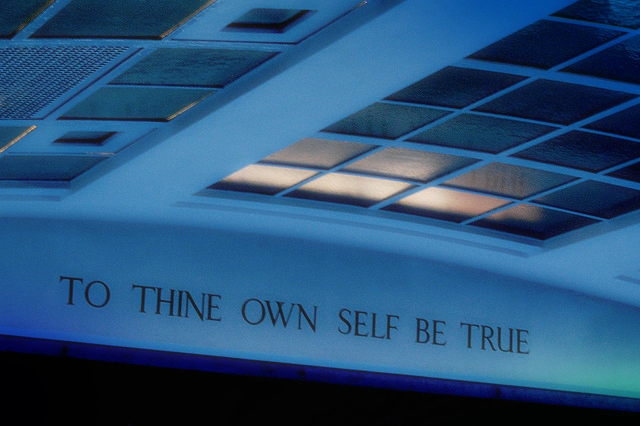
When lunching in London a few weeks ago with an American colleague over here on a research trip, I found myself without a good answer when she asked me, “What has happened to all the women’s studies programmes in this country?” It is true that there are few remaining named programmes of this kind, yet gender, sexuality and feminist studies are still widely taught under the auspices of more traditional degree programmes throughout UK higher education. But I have been wondering ever since that conversation about the effects of the erosion of their distinct academic identity on students and researchers in these areas.
Widespread in US academia since the 1970s, numerous women’s studies programmes were later established in UK universities, the first named programme being the MA in Women’s Studies, established in 1980 at the University of Kent at Canterbury. In the 1990s, the concept of “women’s studies” was criticized by some post-structuralist academics as being too narrowly concerned with female identity, and therefore ignoring broader issues that impact on, and intersect with, sexism (such as cultural expectations of masculinity and the stigmatization of non‑heterosexual, non-monogamous, disabled and trans* people).
The discipline then underwent the partial transition to “gender studies”, aided by the widespread influence of the work of US-based feminists such as Judith Butler and trans studies scholars such as Susan Stryker. In a parallel way, the academic study of sexuality moved from a focus on “lesbian and gay studies” towards “queer” (the branch of theory that, after French historian and philosopher Michel Foucault’s work on the history of sexuality, views identity categories as socially constructed fictions). Within both the academic fields of sexuality/gender studies, and the activist communities concerned with similar issues, rigorous debate has centred on the ways in which identity politics might be balanced with analysis of how different types of oppression intersect with each other. As a result, the lines between women’s studies, gender studies and sexuality studies are far from clear-cut, and all three encompass many methodological and theoretical differences.
Today, variations of all of these branches of study are taught within UK universities. But, as my lunch companion’s query suggested, very few institutions offer undergraduate degrees in them, or have departments with an undergraduate population named after them. And, at postgraduate level, the struggle to ensure the survival of such programmes can be intense, stressful, and seemingly never-ending for those who convene them. I was therefore pleasantly surprised to learn from a colleague the other day that the University of Hull has a named BA programme in gender studies. Yet the “find your course” application on Hull’s website made no mention of it; I only found it later within the department of sociology’s pages. The common practice of incorporating taught elements of women’s, gender or sexuality studies within a traditional discipline means that the flavour of the subject will differ vastly from university to university, depending on the (humanities or social sciences) department within which it is housed. Thus, it is not easy to define quite what women’s, gender, and sexuality studies in the UK context currently is or are (or indeed to determine whether one should properly use a plural or a singular verb).
And this identity crisis exists too for those of us who research and teach in these areas. My degrees were in modern languages and continental philosophy and, throughout my academic career, I have always had a modern languages department code on my payslip. But when people ask what my academic specialism is, I usually answer “sexuality and gender studies”. And when I was promoted to a readership within the French department at Queen Mary, University of London in 2005, I chose the wording “Reader in French Discourses of Sexuality” to describe my specialism (a “brand” I have carried with me to my subsequent chairs at the universities of Exeter and Birmingham). My academic title, then, reflects the very hybrid identity many sexuality and gender studies scholars have, by necessity, to adopt. I feel I need the “French” in there to show where I come from and where I “belong” in disciplinary terms, but the part of the title I care about is the second half. Indeed, beyond being methodologically influenced in my research by the work of Foucault, much of my published work has nothing to do with French per se.
So, is this dual or multiple identity that many scholars of women’s, gender and sexuality studies feel forced to adopt an advantage or a burden in the academic marketplace and workplace? Jason Hartford, a doctoral graduate from the University of Oxford, who also works on queer theory from a modern languages perspective and who is currently seeking his first permanent post, opines that: “there being no structural recognition of the subject to speak of among university departments, it remains very difficult to market yourself as an emerging sexuality studies scholar unless you have another specialism (or two or three) that does have a department named after it.”
Where programmes and modules in sexuality and gender are not contained within more traditional departments, they are instead often affiliated to staff research networks or centres that (nominally) straddle disciplines, schools and colleges. In such organizational situations, the delivery of provision often relies on the goodwill and personal passion of colleagues whose teaching for the cross-departmental MA or MRes may not be recognized in department-based workload allocation models (especially if they are not from the department – usually that of the centre’s director – that bureaucratically “owns” the programme and centre). Senior managers are often keener on the idea of interdisciplinarity, as the buzzword du jour, than on ensuring that those whose research and teaching is properly interdisciplinary are enabled to pursue it straightforwardly within the institutional infrastructure. Similarly, many colleagues report that, while such networks and centres are encouraged, there is seldom any financial investment from institutions to help them flourish; centres are typically expected to generate their own income – and to make a profit for the university – from the outset.
In some institutions, programmes may not even be harnessed to existing research centres with a hub of staff. One graduate, who asked to remain anonymous, told me: “I did a master’s in women’s studies at [an elite UK institution] in 2009-10, and although the cohort and many of the teachers were inspirational, the university’s support for the programme was dreadful. There were no permanent or full-time members of staff devoted to it: everyone involved managed it by carving out a space from their other jobs.” She also commented that: “the curriculum seemed to only reach up to 1995, when the course had been founded, with no mention at all of anything happening since then […] and was very much white-Western-middle-class focused — little content on the developing world, or intersectionality, or on any kind of activism other than through a historical lens.”
While the organization of some programmes may be less than ideal, the national reality is that many programmes and modules in the field are being withdrawn altogether. And, whereas the graduate cited above complains about the absence of intersectionality (the consideration of how axes of oppression such as sexism, racism, classism, homophobia etc., interact) in the white-women-centric curriculum of the programme she studied, elsewhere it is feminism itself that is perceived to be missing from the study of social institutions and justice. Phil Hubbard, Professor of Urban Studies at the University of Kent, told me that: “Sociology at University of Kent used to be one of the leading centres of women’s studies thanks to Mary Evans, Jan Pahl and others. But we’ve cut our gender and women’s studies PhD programmes, as well as undergraduate modules, so we teach class, race, embodiment and health in our sociology and social sciences undergraduate programmes with little formal teaching provision in gender or sexuality. It’s very sad.”
Despite the problems of institutional organization that can impact upon the student experience of learning women’s, gender, and sexuality studies in the UK, graduates of these subjects are vocal about the significance of the subject matter and the value of their studies. I issued an invitation on Twitter, when preparing this article, for graduates to send me their impressions of their degrees, and many of the responses I received focused on the benefits of the critical-thinking skills taught within such fields both for their own sake and for their application in activist and professional spheres.
Linnea Sandström Lange, an alumna of the London School of Economics’ MSc in Gender, Policy and Inequalities, said her degree equipped her with “a whole different layer of analysis and understanding, without which you cannot work against injustice”. And Laura Theobald, who read a BA in Women’s Studies at the University of Redlands in the US and is currently a student on the MA in Women’s and Gender History at the University of Nottingham, agreed that her training made her “critical of the world”. She finds this critical faculty useful in her role as a postgraduate officer at Nottingham, which partly involves advocating from an equality and diversity perspective on behalf of students. Where comments on these programmes were less favorable, two criticisms were raised numerous times. One was the lack of space given to masculinity studies in the curricula of “gender” (rather than specifically “women’s”) studies programmes. The other was the insufficient attention paid to the fraught relationship between women of colour and Western feminism. The overwhelming consensus from my informal Twitter poll, however, is that current and past students are calling for more comprehensive, up-to-date, relevant, and properly funded provision in areas of study that they perceive to be of great value — and that are instead being underfunded and cut.

So is the picture the same in other anglophone countries? Expert in the history of sexuality, Ivan Crozier, a Senior Lecturer in the Science Studies Unit at the University of Edinburgh, and currently seconded to the University of Sydney, Australia, reports that, although provision in sexuality and gender studies is being cut in Edinburgh, his history department at Sydney has an honors course and a graduate seminar on the history of sexuality, while several other undergraduate courses have sexuality and gender-specific lectures. “It’s a very different climate for that kind of study here,” he says.
And Susan Knabe, an Assistant Professor jointly in the Department of Women’s Studies and Feminist Research and the Faculty of Information and Media Studies at the University of Western Ontario, Canada, reports that while gender studies programmes at Guelph and McMaster have recently been closed, her own institution’s programmes continue to recruit well. “The introduction of a gender studies component in high schools this year [in the province of Ontario] will be very helpful in making folks more aware of gender/women’s studies before they arrive at university,” she adds.
Given education secretary Michael Gove’s reputation for conservatism – exemplified by the new history curriculum he has developed with Simon Schama that all but eliminates the study of contributions made by anyone other than titled, white, British men and a handful of noble-born women – it is extremely difficult to imagine such an addition being made to UK school curricula. But it is precisely because we are witness to an increase in social divisiveness in education, as in many social policies, that young people in the UK more urgently than ever need to be taught to think critically about how power works with regard to categories of sex, gender, multiculturalism, race, (dis)ability and socio-economic class.
Evelyn Torton Beck wrote in an article on the role of feminist education in 1990 that “women’s studies is at the centre of a revolution whose aim is nothing less than the transformation of the university”. But, as a scholar who believes that teaching is a form of activism, I would agree with the graduates quoted above and argue that what is taught and written in the academy can lead to social transformation. And this is why the disappearance of so many programmes in women’s, gender and sexuality studies should be a cause of concern to us all.
***
A slightly shorter version of this piece first appeared in the Times Higher Education on 20 June 2013. (Link here). It is republished here with their kind permission.
